Post-death Variations
Following a person’s death, the beneficiaries or trustees of the person’s estate may choose to rearrange the way assets had been distributed. This may be because a beneficiary wishes to transfer their benefits to other members of the family who may have been less well provided for or, who are in greater need than they are. Alternatively, it may be that redistributing the assets will result in tax savings. Further, if some of the estate is redirected to a charity then a lower IHT rate can be used across the entirety of the deceased’s person’s estate (i.e. the property they leave in their will).
The conditions of variations post-death
In order to obtain the maximum IHT benefit the variation will mean that the varied terms of the will take effect as if they had been the terms on death so the new varied terms will apply for the IHT liability. The beneficiary has to enter into the variation within 2 years of the death of the testator (the person who died). The variation must not be made for any payment of money or money’s worth (i.e. a lifetime interest in the asset being transferred would be viewed as money’s worth). The beneficiary must be aged 18 years of age or over and have mental capacity.
In some cases, consent of the court is required for a variation. The Variation of Trusts Act (VTA) gives the court the power to consent to a variation in place of minors or those who lack mental capacity. However, such applications are very expensive so only worthwhile if the tax savings are substantial.
Your solicitor may advise you to consider a ‘flexible will’ or one with a discretionary trust element so as to avoid the lack of capacity issue. Advice is always necessary for such complex will arrangements.
So long as the conditions are met, a variation will not incur IHT liability per s17 IHTA 1984.
Capital Gains Tax
Capital gains tax benefits are similar to the IHT benefits outlined above. The variation must be made in writing and within 2 years of the death of the testator. The variation must also be for no monetary benefit or benefit in money’s worth.
CGT is not payable when receiving assets from an estate (this would be IHT) so replacing beneficiaries does not in itself give rise to a CGT liability. However, without the variation formality, the beneficiary transferring their benefit would be making a disposal so potentially giving rise to a CGT liability.
However, if the variation is made properly and the benefit of s62(6) of TCGA 1992 is claimed, the variation is considered as having been made by the deceased person so there is no transfer giving rise to a disposal by the original beneficiary.
Paying tax at the most favourable rate
For post-death variations and disclaimers the effect of the will being ‘written back’ i.e. as if the new provisions had been written into the original will and thus attracting IHT per the new provisions, differ.
For post-death variations a written election has to be made by the beneficiary wishing to redistribute their benefit and this written election will depend on their personal tax position.
However, with disclaimers the ‘writing back effect’ is automatic.
There are two main ways inherited property can be redirected:-
Lifetime gift by a beneficiary of an inheritance
This is not technically a post-death variation. The beneficiary of an inheritance simply gives it away and it will be classed as a Potentially Exempt Transfer (‘PET’) and the usual IHT and CGT tax consequences will apply. However, the beneficiary can also transfer the assets to be held on trust and this will result in a lifetime chargeable transfer.
Variations of the dispositions of the deceased person’s estate
So long as the correct form is used, the variation will take effect as if the will had been drafted in the same way as it had after the variation and therefore IHT on the estate will take effect in accordance with the variation.
If the variation is not applied for correctly and in the appropriate form then transfers made by the beneficiaries will be viewed as PETs or lifetime transfers (as referred to above under point 1).
Wills may also be varied in the following ways, though these are less common:
- Orders made under Inheritance (Provision for family and Dependants) Act 1975 and the capitalisation of a life interest on intestacy
Such orders rearrange the distribution of the estate on death and therefore affect the extent of the liability to IHT on the estate on death.
- Precatory Trusts
This is where the person creating a will confers a discretion on the personal representatives and sometimes their beneficiaries to determine (after they have died and when their will takes effect) how parts of the estate can be distributed.
- Disclaimer of Benefit
The beneficiary can reject the benefit (i.e. whatever they have been left in the deceased’s person’s will) and the benefit will then pass in accordance with the will to the next beneficiary.
The disadvantage of this is that if the beneficiary has a particular other beneficiary in mind that they wish to pass their benefit to, they cannot control who gets their rejected benefit by using the disclaimer option – the disclaimer option means that per the deceased’s person’s will or on their intestacy (if they had no will) the next beneficiary in line will benefit after the original beneficiaries disclaimer (rejection).
There can be tax advantages to disclaimers for example; a disclaimer by a parent is often used to create a post-death redirection of benefit in favour of minor children.
Charitable bequests
When drafting a will, the person wishing to leave some of their estate to charity may do so for altruistic reasons and due to the tax advantages conferred by Sch1A IHTA 1984. However, how much the testator can leave to charity is not always clear at the time of setting up their will.
Therefore, clauses can be drafted into the will to allow for a formula to apply to charitable donations but these arrangements are complex.
An alternative would be for the beneficiaries to redirect benefits to a charitable organisation by post-death variation thus allowing the beneficiaries to assess how much to give based on the size of the estate. Due to the IHT benefits, sometimes, redirecting to charity can mean that the beneficiaries receive a greater benefit than had they not done so.
The ‘writing back’ effect referred to above for IHT liability will only apply (after 6th April 2012) if the charity had been notified of the variation.
What provisions of a will can be varied and how often can you vary?
A beneficiary can reject any of the benefits passing under the terms of the will in respect of all property which existed in the deceased’s estate (their assets) upon their death.
Assets forming part of an estate are not always as straightforward as you would think so expert legal advice is recommended when considering electing variations or disclaimers.
You can vary or disclaim several times so long as different property (assets) are being redirected. The same property cannot be redirected for a second time.
Treatment of income tax on the property pre and post transfer
Any income tax due to be paid on the property pre its transfer must be paid by the original beneficiary. Post the transfer or disclaimer, any income tax due will be paid by the new beneficiary or, if a minor, their parents notwithstanding they do not benefit from the property which is the subject of the income tax charge.
There are relatively complex income tax anti avoidance rules which may apply to variations where the property being transferred creates an income and if not considered properly, the original beneficiary still may retain a tax liability. Therefore, specialist advice should be obtained.
Disclaimers are a rejection of a benefit where the beneficiary retains no interest and as such do not come under the anti avoidance tax measures.
How to effect a variation?
A deed of variation does this. It must be made in writing and because large sums are often involved, this should be signed by all parties (i.e. made by deed). The personal representatives should be added to the agreement as parties in order to protect them given then will be redistributing property contrary to the original terms of the testator’s (deceased person’s) will.
The deed will need also to state that the parties wish for the agreement to be ‘written back’ for tax purposes pursuant to IHTA 1984 s142(1) and or TCGA 1992 s62(6) thus benefiting from the IHT/CGT savings available by making the election.
CALL US TODAY
Call us now on 0808 256 2917 for a confidential and no obligation initial discussion or email [email protected].











